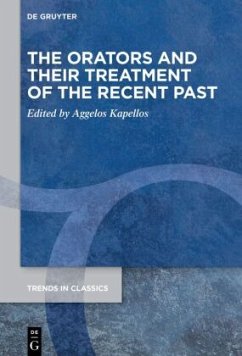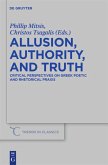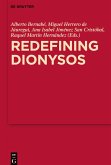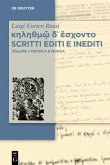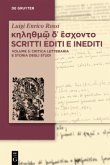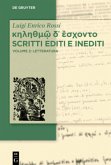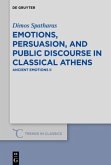This volume focuses on the representation of the recent past in classical Athenian oratory and investigates the ability of the orators to interpret it according to their interests; the inability of the Athenians to make an objective assessment of it; and the unwillingness of the citizens to hear the truth, make self-criticism and take responsibility for bad results. Twenty-eight scholars have written chapters to this end, dealing with a wide range of themes, in terms both of contents and of chronology, from the fifth to the fourth century B.C. Each contributor has written a chapter that analyzes one or more historical events mentioned or alluded in the corpus of the Attic orators and covers the three species of Attic oratory. Chapters that treat other issues collectively are also included. The common feature of each contribution is an outline of the recent events that took place and influenced the citizens and/or the city of Athens and its juxtaposition with their rhetorical treatment by the orators either by comparing the rhetorical texts with the historical sources and/or by examining the rhetorical means through which the speakers model the recent past. This book aims at advanced students and professional scholars. This volume focuses on the representation of the recent past in classical Athenian oratory and investigates: the ability of the orators to interpret it according to their interests; the inability of the Athenians to make an objective assessment of persons and events of the recent past and their unwillingness to hear the truth, make self-criticism and take responsibility for bad results.

